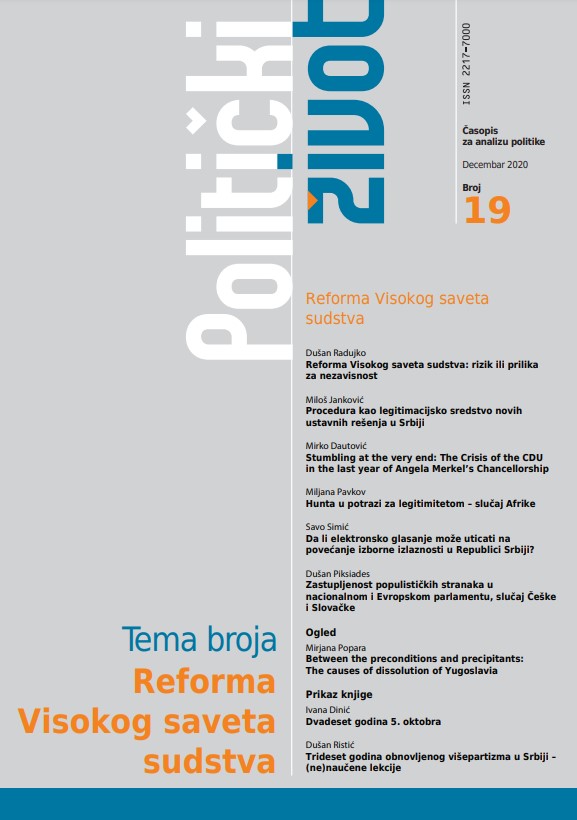Between the preconditions and precipitants: the causes of dissolution of Yugoslavia
Between the preconditions and precipitants: the causes of dissolution of Yugoslavia
Author(s): Mirjana PoparaSubject(s): Politics of History/Memory, Wars in Jugoslavia
Published by: Fakultet političkih nauka Univerziteta u Beogradu
Keywords: dissolution; Yugoslavia; causes; civil war; preconditions; precipitants; underlying factors; subjective factors
Summary/Abstract: Events from the early 1990s gave a fresh impetus for the scholarly inquiry into the causes of civil wars. The complete breakdown of the political order in Yugoslavia (1991-1995) and civil war in Rwanda (1994) renewed the interest of academics in identifying trends and patterns which precondition escalation of violence. The wider debates on the causes of civil wars usually distinguish between the objective factors such as the demographic structure of the population, type of political system and the level of economic development which make one society vulnerable to the outbreak of violence. Nevertheless, the tendency to analyze the objective reality which precludes the conflict, often means that the role of individuals, political elites and their incentives for waging a war are ruled out from the explanation. This paper adopts the approach that both the preconditions – objective factors and precipitants – triggers and catalysts of the conflict are important in determining its cause. In an attempt to enlighten the factors which contributed to the dissolution of Yugoslavia, this paper firstly aims to identify underlying tensions in Yugoslav society prior to its collapse. Secondly, it analyses the role of individuals in igniting the conflict. Finally, it concludes whether the approaches which emphasize the preconditions or precipitants offer sufficient explanation on the causes of civil war in Yugoslavia.
Journal: Politički život
- Issue Year: 2020
- Issue No: 19
- Page Range: 99-107
- Page Count: 9
- Language: English

